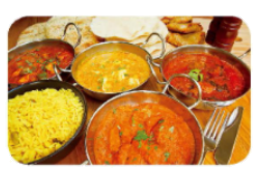| A. primarily B. beneficial C. set D. luxury E. virtually F. fetch G. crown H. diplomacy I. touch J. appealing K. fascinating |
Kweichow Moutai, the company that makes the eponymous (同名的) liquor, is China’s most valuable firm outside of technology. Globally, its market cap has surpassed Coca-Cola, which had long held the
Apart from the Chinese diaspora (移民社区), however, Moutai is still
So how is a company that sells its products
Moutai is named after Maotai, a picturesque small town in the southwestern Chinese province of Guizhou. This is where the company says its baijiu — distilled (蒸馏) from fermented (发酵的) sorghum and rice — gets the magic
According to the Moutai Museum, environmental factors, such as the town’s climate and seasonal changes in the water of the local river, help give the liquor its unique taste and is
Known as the favorite tipple of Mao Zedong, founder of Communist China, and as the ‘drink of
Being part of so many major public events in China ‘has really
Today, the brand is seen more as a
“It’s also been a tremendous advantage during an economically tough year: wealthy consumers who are spending less on travel may splurge more on liquor,” Cavender said.
相似题推荐
| A. served B. spares C. yields D. practically E. consumed F. reminds G. tosses H. strikingly I. stubbornly J. desired K. flavors |
Yunnan Province, covering an area of 394,000 square kilometers, combines unique ethnic cultures, magnificent mountain scenery, rainforest, tea plantations, ancient towns and delicious food. Kunming, Dali, Lijiang and Shangri-La are always on the bucket list to those who haven’t been to Yunnan before.
In the courtyard of her restaurant in Xishuangbanna, Su Ying is preparing to give me a cooking lesson. But she has no pots and pans. Instead, she is going to cook the food in banana leaves and tubes of fresh bamboo on a small fire under an iron tripod in a corner of the yard.
Su
Even to many Chinese, Yunnan seems exotic. Its remoteness
On my trips to the province over the years I have dined on toasted barley flour and
No one restaurant or chef could represent Yunnan. There is no single overarching Yunnan cuisine, but a selection of overlapping ones. And more than anywhere else in China, delicacies
| A. automatically B. coexist C. concept D. discontinued E. discouraged F. necessarily G. optimism H. priced I. profit-generating J. promotional K. trash |
Too Good To Go
Around the country, apps that connect customers to businesses with leftover food have begun to spread. The
In the United States, customers in 12 cities can look through restaurants and stores on Too Good To Go, then reserve “surprise bags” that typically cost about $4 to $6 and contain food that would have been
Several food waste experts expressed
One complication is that, according to interviews with several companies selling on Too Good To Go, at least a few items for sale there aren’t
Mr. Crummie, the Too Good To Go director, said the app
| like a bit a kind of |

Henry: Have you ever tried Indian food? It’s
Susanne: No, I haven’t. Is it
Henry: No, it’s completely different. One of my favourite dishes is Biryani. It’s
Susanne: Hmm, that sounds tasty, but isn’t Indian food
Henry: Not at all, there are a lot of vegetable dishes and Indians like eating fried chicken too. It’s just
Susanne: Well, I like fried chicken, so I guess I would definitely like that. But don’t Indians also eat
Henry: Cabbage and ginger thing? Do you mean kimchi?
Susanne: Yes, it’s
Henry: Yes, you’re right, but kimchi isn’t an Indian dish. It’s Korean!



